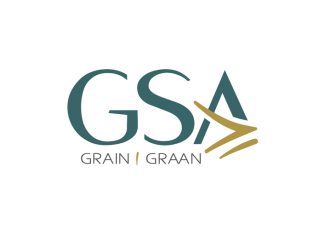
CEO, Grain SA
A common misconception held by many consumers is that agricultural producers over-exploit our soils, pollute without restraint and contribute significantly to carbon emissions. This could not be further from the truth. Grain producers view soil as the bedrock of superior production and their legacy to future generations. It is rare to find producers who use excessive pesticide, especially considering the high cost of diesel.
However, climate variability is an urgent issue with profound impacts for the global agricultural sector. In South Africa, this is noticeable in the negative impact that rising temperatures, changing rainfall patterns and the increase of extreme weather events have on grain production. This makes it difficult for producers to consistently deliver quantity and quality grain to ensure food security and livelihoods. Therefore, it is crucial for Grain SA – in representing its members – to participate in global efforts to address climate change in order to support producers and their legacy for future generations.
Many South African grain producers have adopted sustainable farming practices such as crop rotation and precision farming to reduce the cost of production, and consequently lessened their carbon footprint and improved resilience. However, there remains a critical need for more detailed data and research to address the effects of climate change on grain production in South Africa.
In this regard, regional climate modelling, soil health, water management, climate-resilient grain varieties, economic and social implications, and the effectiveness of sustainable practices require further research to support conservation agriculture. Addressing these knowledge gaps will provide grain producers with the necessary tools and support to adapt to climate change, ensuring a sustainable and resilient grain production industry in South Africa.
The necessity for such research has been highlighted by the release of the draft sectoral emission targets (SET) report by the Department of Forestry, Fisheries and the Environment (DFFE). This report will serve as a basis for the compilation of a national adaptation strategy plan for climate change, as mandated by the Climate Change Bill, currently awaiting the president’s signature.
The current SET report attributes 11% of the country’s carbon output to agriculture, but it offers a one-size-fits-all approach that does not address a grain producer’s unique circumstances. Factors such as region, soil type and farming practices cause significant variations in the carbon footprint of grain production and need to be taken into consideration. Grain SA will continue supporting such research and data collection to develop an accurate assessment and monitoring system to mitigate the impact of grain production on the environment while ensuring a sustainable future for our industry.
Grain SA will also advocate for the recognition of the carbon sink potential of grain production when assessing the sector’s emission footprint. We must adopt a holistic approach that recognises both emissions and carbon sequestration potential to ensure a comprehensive understanding of the role of grain production in the broader climate change landscape.
Grain producers also face the prospect of being held to SET targets over which they have little control, such as electricity generation, and fuel emissions by transport suppliers as well as fertiliser and pesticide manufacturers. Therefore, to effectively address carbon emissions in the agricultural sector, we need more detailed and nuanced data. This will enable the development of evidence-based policies and practices that support grain producers in reducing their carbon footprint.
The financial implications of complying with SET must also be considered. It is crucial to develop policies that balance emission reduction goals with the economic realities faced by grain producers, ensuring a sustainable and fair transition to a lower-carbon agricultural sector. Grain producers face significant costs in implementing emission reduction practices, such as adopting new technologies or changing their farming methods. Without sufficient financial support and incentives, these costs can be unaffordable, potentially threatening the viability of grain production enterprises and the food security they provide.
However, grain producers can rest assured that while they are focussing on feeding the nation, Grain SA is addressing all these policy and regulatory challenges in a proactive manner. This is evident in our concerns on the SET report as officially presented to DFFE, our ongoing consultation with members of the agricultural value chain and our active participation in the official intergovernmental working group in this regard.
Our members are well aware of their custodial responsibility towards our natural inheritance and Grain SA welcomes any initiative to improve sustainability. However, these initiatives must be based on facts and not increase the regulatory burden on producers.












